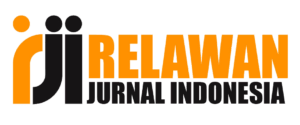Evaluating TOEFL ITP Test: A Critical Review
DOI:
https://doi.org/10.30812/humanitatis.v9i2.2329Keywords:
Assessment, TOEFL, practicality, validity, test reliabilityAbstract
The critical objective of this present study is to conduct substantial evaluation of TOEFL as a language assessment tool. Using a qualitative method, the authors of the present study evaluated various specific issues based on a set of predetermined criteria such as practicality, test reliability, validity, authenticity, and washback impact. The analysis indicates that TEOFL ITP is both feasible and dependable. The TOEFL's dependability is based on these three components. However, unless the ITP test is altered from the previously used TOEFL, the TOEFL ITP is as reliable as the TOEFL PBT. In theory, its trustworthiness is uncertain, and more investigation is needed. It is debatable whether the TOEFL ITP test items can accurately represent this task when utilized for the placement test. TOEFL ITP is a reliable English test. Knowing the TOEFL significance encourages test takers to enhance their English skills as part of the exam. More students want to take lessons to enhance their grades.
References
Cizek, G. J., Rosenberg, S. L., & Koons, H. H. (2008). Sources of validity evidence for educational and psychological tests. Educational and Psychological Measurement, 68(3), 397–412. https://doi.org/https://psycnet.apa.org/doi/10.1177/0013164407310130
Educational Testing Service. (2010). TOEFL internet-based and paper-based tests. December.
Farnsworth, T. L. (2013). An investigation into the validity of the TOEFL iBT speaking test for international teaching assistant certification. Language Assessment Quarterly, 10(3), 274–291. https://doi.org/10.1080/15434303.2013.769548
Franzen, M. D. (2000). Reliability and Validity in Neuropsychological Assessment Critical Issues in Neuropsychology (2nd ed.). Springer Science & Business Media.
Hilke, R., & Wadden, P. (1997). The Toefl and Its Imitators: Analyzing the Toefl and Evaluating Toefl-Prep Texts. RELC Journal, 28(1), 28–53. https://doi.org/https://doi.org/10.1177/003368829702800103
Huu, D., & Ngoc, T. (2016). Assessment Model for Language Learners’ Writing Practice (in Preparing for TOEFL iBT) Based on Comparing Structure, Vocabulary, and Identifying Discrepant Essays. International Journal of Advanced Computer Science and Applications, 7(5), 148–153. https://doi.org/10.14569/ijacsa.2016.070523
Kerans, M. E., Cid-aranda, E., Kennedy-scanlon, M., & Maria, R. (2014). to successful performance. 2014.
Linn, R.L. & Gronlund, N. E. (1995). Measurement and assessment in teaching (7th ed.). Englewood cliffs, NJ: Prentice-Hall.
Lissitz, R. W., & Samuelsen, K. (2007). Further Clarification Regarding Validity and Education. Educational Researcher, 36(8), 482–484. https://doi.org/10.3102/0013189x07311612
MacMillan, J.H. & Schumacher, S. (2001). Research in Education. A Conceptual Introduction (5th ed.). Longman.
Messick, S. (1995). Validity of psychological assessment: Validation of inferences from persons’ responses and performances as scientific inquiry into score meaning. American Psychologist, 50(9), 741–749. https://doi.org/10.1037/0003-066X.50.9.741
Perez-Amurao, A. (2011). The Types and Nature of Questions vis-à -vis Students’ Test-Taking Skills as Significant Indicators of Second Language Examinees? Performance on the TOEFL-ITP Reading Comprehension Sub-Test. Online Submission, 6(2), 39–56.
Pyle, M. A., & Page, M. E. N. (2002). TOEFL Preparation Guide (Test Of English As A Foreign Language). New Delhi : Wiley Dreamtech.
Taufiq, Wahyu., Santoso, D.R., & Fediyanto, N. (2017). Critical Analysis on TOEFL ITP as A Language Assessment. 1st International Conference on Intellectuals’ Global Responsibility (ICIGR 2017), 125.
Templer, B. (2004). High-Stakes Testing at High Fees : Notes and Queries on the International English Proficiency Assessment Market. Journal for Critical Education Policy Studies, 2(1), 1–24.
Wainer, H., & Lukhele, R. (1997). How reliable are TOEFL scores? Educational and Psychological Measurement, 57(5), 741–758. https://doi.org/https://psycnet.apa.org/doi/10.1177/0013164497057005002.
 

 Ahmad Amin Dalimunte
Ahmad Amin Dalimunte















